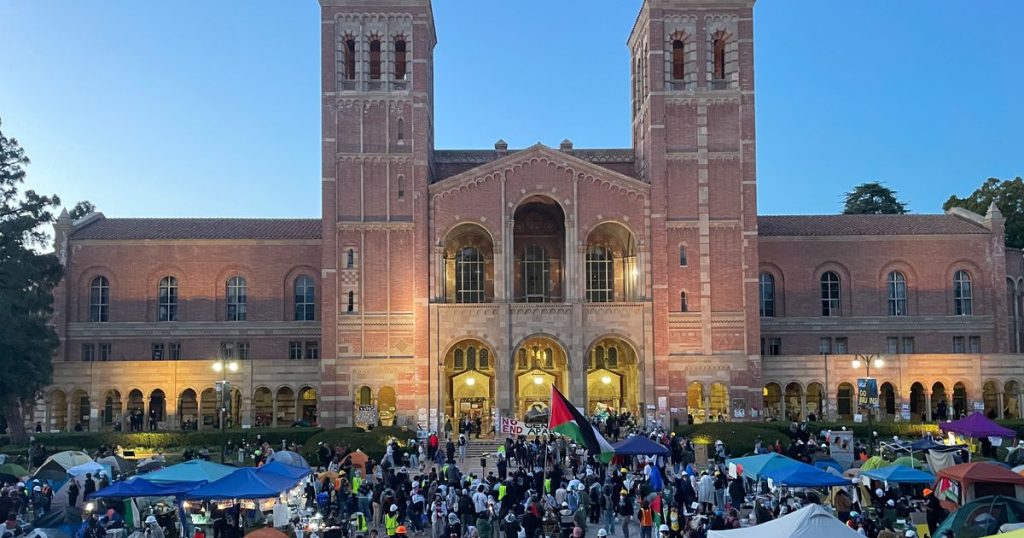More than 200 UCLA students, faculty, and staff were arrested after police dismantled the Palestinian solidarity encampment on campus. This encampment was established by hundreds of students calling for UCLA to divest from companies with ties to Israel and disclose the finances of the school’s foundation. Similar protests have been held at universities across the country since Israel’s military assault on Gaza. The encampment at UCLA had a vibrant community, workshops, teach-ins, and supplies for participants. The protests were described as a beautiful display of unity and activism by participants and observers.
The university initially tolerated the protests but later declared the encampment illegal, citing academic mission disruption and concerns for the safety of Jewish students. A large group of counter-protesters descended on the campus and engaged in violent clashes with the encampment participants. LAPD officers reportedly stood by and watched the violence unfold without intervening. The counter-protesters were accused of shouting racist and homophobic slurs, and threats of violence against the protesters. The LAPD eventually intervened but made no arrests and used no force.
The encampment participants cleaned up and fortified their site in anticipation of police intervention. A confrontation ensued with police using flash-bang devices and “less-lethal” bullets against the students. Hundreds of students and faculty were arrested and released from detention centers. UCLA Chancellor Gene Block defended the decision to clear the encampment, citing safety concerns and a breach of university policy. Alumni expressed solidarity with the protesters’ demands, but the university administration did not indicate a willingness to meet them.
Students described the campus as a “war zone” during the protests, with reports of tear gas, arrests, and mistreatment by law enforcement. Some students shared their experiences of being forcibly removed by police and humiliated during the clearing of the encampment. Despite the crackdown, some students expressed a desire to rebuild the community and continue advocating for their demands. Others emphasized the importance of the university addressing their concerns and being transparent about financial decisions. The protests reflected a broader trend of campus activism in response to global conflicts, with participants expressing a commitment to non-violence and solidarity with marginalized communities.












